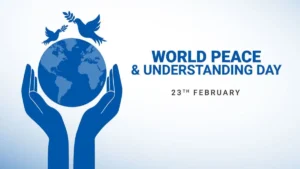The International Day for Biological Diversity is celebrated every year on May 22. This year, it falls on a Wednesday. The theme for 2024 is “Be Part of the Plan.” This theme encourages governments, indigenous peoples and local communities, non-governmental organizations, lawmakers, businesses, and individuals to showcase their efforts in supporting the implementation of the Biodiversity Plan.
History of International Day for Biodiversity
The International Day for Biological Diversity was established by the Second Committee of the UN General Assembly in 1993. Originally, it was celebrated on December 29 to mark the day the Convention on Biological Diversity came into effect. However, on December 20, 2000, the date was changed to May 22. This change was made to commemorate the adoption of the Convention at the Rio de Janeiro Earth Summit in 1992 and to avoid the many holidays in late December.
Significance of International Day for Biodiversity
The International Day for Biological Diversity is closely aligned with the UN Post-2015 Development Agenda and the Sustainable Development Goals (SDGs). These goals address a wide range of global issues, emphasizing the critical role that biodiversity plays in sustaining life on Earth. Biodiversity significantly impacts:
- Oceans and Seas
- Forests
- Food Security
- Health
- Sustainable Development
- Science, Technology, and Innovation
- Knowledge-Sharing and Capacity-Building
- Urban Resilience
- Sustainable Transportation
- Desertification, Land Degradation, and Drought
- Water and Sanitation
The importance of biodiversity in sustainable development was highlighted in the Rio+20 outcome document, “The World We Want: A Future for All.” This year’s celebration aims to build momentum leading up to the sixteenth meeting of the Conference of the Parties to the Convention on Biological Diversity (COP 16), scheduled to be held in Colombia from October 21 to November 1, 2024.
How to Support Biodiversity
Supporting biodiversity can be done through various means. Here are some ways to get involved:
Government Initiatives: Governments can implement policies that protect and preserve biodiversity.
Community Efforts: Local communities and indigenous peoples can showcase traditional knowledge and practices that sustain biodiversity.
Non-Governmental Organizations (NGOs): NGOs can organize events and campaigns to raise awareness about biodiversity.
Business Practices: Businesses can adopt sustainable practices that reduce their impact on the environment.
Individual Actions: Every individual can make a difference by making environmentally conscious choices in their daily lives.
Promotional Materials
To show support for biodiversity, the UN provides promotional materials for the day. These materials can be used to spread awareness and encourage more people to get involved in biodiversity conservation efforts.




 TRAI Marks 29th Foundation Day 2026
TRAI Marks 29th Foundation Day 2026
 Central Excise Day 2026: Why 24 February...
Central Excise Day 2026: Why 24 February...
 World Peace and Understanding Day 2026: ...
World Peace and Understanding Day 2026: ...








